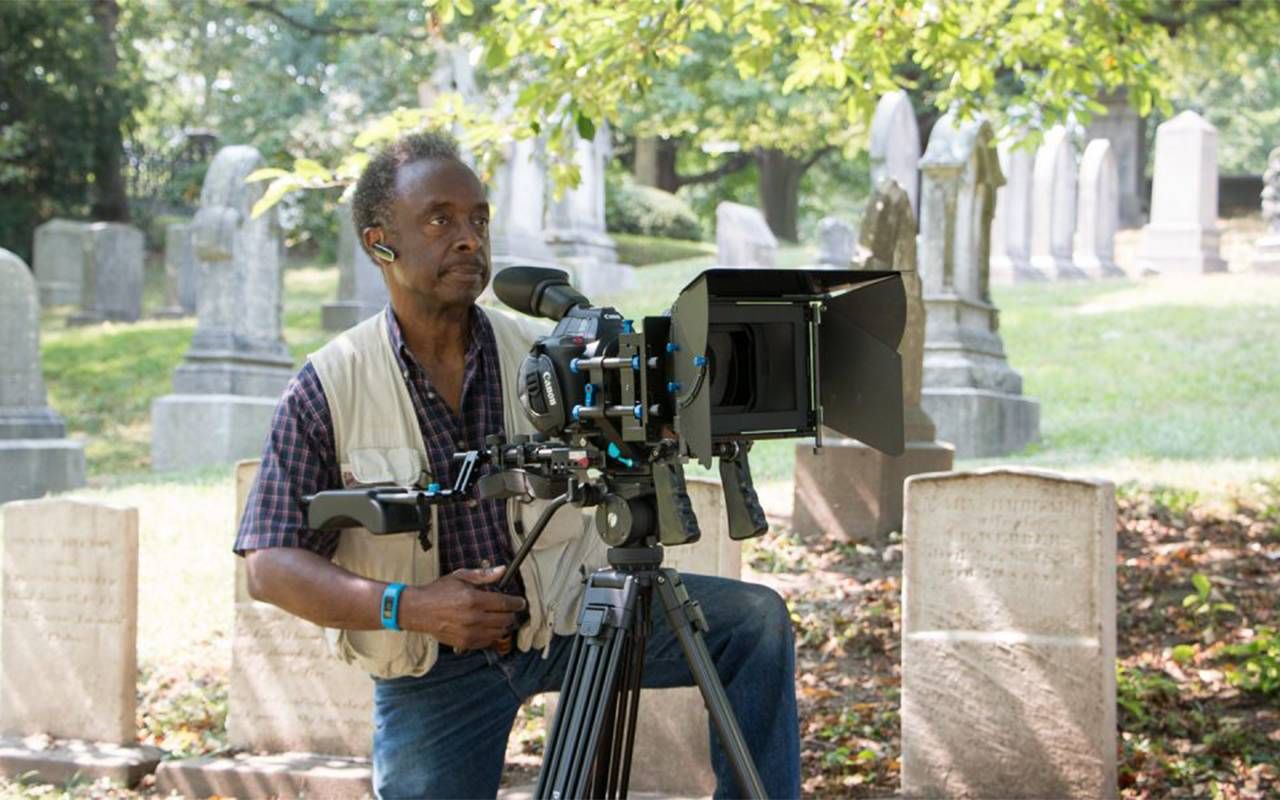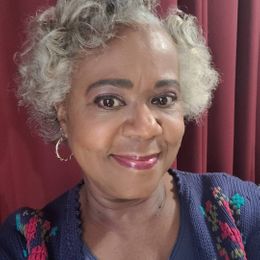Paying It Forward by Mentoring
Mentors helped Roberto Mighty succeed as a filmmaker, artist and television host, and now he is doing the same for others
Editor’s note: This article is part of Lessons from Leaders, a Next Avenue initiative made possible by the Richard M. Schulze Family Foundation and EIX, the Entrepreneur Innovation Exchange.
Roberto Mighty has succeeded in many fields: music writer and producer, TV and video producer, visual and media arts educator, musician, documentarian and creator and host of two public television series, "getting dot OLDER" and "The World's Greatest Cemeteries."
But the 68-year-old Boston filmmaker and multimedia artist is quick to say he has had a lot of help along the way.

"Yes, I did have mentors at every step of my career in each field that I was in, and I'm grateful," he says. "I've found that people who have received help are often open to helping others — especially when they see that you are willing to work hard, have passion and listen well."
"I did have mentors at every step of my career in each field that I was in, and I'm grateful."
He is also quick to say how eager he is to do the same for others. "There are so many people who helped me along the way that I'm happy to pay it forward and share advice to help younger folks and also those in mid-life or closer to retirement who want to try something new," he adds.
A native of the Jamaica section of Queens in New York City, Mighty has been a Boston resident since his undergraduate days at Boston University.
Breaking Into Radio
"Besides my parents and my brothers, one of my earliest mentors was a fellow Black student who had recently graduated from B.U.," he says. "His name was Jeffrey Myers and he saw that I had built a small recording studio in my dorm room — I was a senior writing radio plays in 1976."
"He worked for WBZ AM radio and said I should be making radio commercials," Mighty adds. "He introduced me to an advertiser for WBZ radio. They paid me $100 to write a one-minute radio commercial and I thought I had died and gone to heaven."
After graduating, Mighty continued to write and produce music, record clients in his studio and work as an audio engineer. He expanded from writing radio commercials and jingles to also producing television commercials and shows, which was more lucrative.
Climbing the Ladder
"First, I did a show about local bands that played on small local TV stations," Mighty recalls. "Then I got the idea to do a cooking show that focused on food origins from farm to table. That secured me as a television producer because people could see my name in the credits."
The show, "Food New England" started on a small independent broadcaster, WABU Channel 68, but moved to WCVB Channel 5, the ABC affiliate in Boston.
While his cooking show was on commercial television, Mighty recalls that Lee Anderson, a Black woman who was an account executive at WCVB, was helpful in advising him on how to approach potential TV sponsors. Elizabeth Cheng, a WCBV vice president and the director of programming and communications, also was instrumental in mentoring him, he says.
Producing the food show garnered the attention of some corporate clients and led to Mighty finding success in the field of corporate video production. From the mid to late 1980s, he interacted with three mentors who he said were extremely helpful.
Key Early Mentors
One was Bob Jaczko, a white ad agency executive. "He hired me as a freelance jingle writer and took me under his wing and taught me about advertising and self-marketing," recalls Mighty.
"At the time, I worked under the company name Midgaard," he says. "Bob told me I should rename it Roberto Mighty Productions and have my picture on all brochures. I balked at doing that. He said, 'Those people who are going to reject you because of prejudice, you don't need them in your life.' That was really eye opening for me."
Today Mighty serves most of his corporate and nonprofit clients under the banner of Celestial Media and does other creative projects under Roberto Mighty Productions.
Two Boston-based Black commercial photographers — Don West and Lou Jones — were other early mentors.
Small-Business Basics
"I had always been a freelancer, and Don, who was successful in journalistic photography, showed me how to lead clients and develop projects, and how to get paid," Mighty says. "Lou Jones worked with corporate clients and had his own company that photographed travel locations. He did photography at the Olympics, and I thought that was so cool.
"Even though I was not working as a professional photographer at the time, they informally coached me about how to handle myself professionally . . . and as a Black man in a freelance world."
Years after finding success in corporate video production, Mighty became intrigued with creative filmmaking so he decided to get an MFA in visual arts from the Art Institute of Boston, which is now the College of Art and Design at Lesley University.
Expanding Into Television
"I also began to do short films that I could shoot myself," Mighty adds, "and I did art installations: two at Harvard and one at Mount Auburn Cemetery. I thought it might be fun to have a TV show that looked at cemeteries all over the world."
The series explores the history, diversity and landscaping at cemeteries in the U.S. and around the world. He proposed the idea to American Public Television, a distributor that works with PBS and agreed to greenlight the series. Mighty added TV show host and producer to his list of credits.
The second season of "The World's Greatest Cemeteries" premiered in February 2023 on American Public Television online and public television stations nationwide, and APT has ordered a third season.
His other series, "getting dot OLDER," marked its second season in May 2023. It is an intimate look at getting older and features different participants in each episode.
Mentoring Others
Having two shows on public television as well as spending 12 years as an adjunct professor in the Department of Visual and Media Arts at Emerson College and teaching film and video at Boston University, means that Mighty gets a lot of emails from those seeking advice.
"I hear from former students and now also get fan mail with questions from both series on public television," says Mighty. "Sending a brief email stating their interests is the best way to approach a possible mentor."
Mentees, or protégés, need to show mentors that they have a passion for the industry in which they are trying to move forward, notes Mighty.
Wanted: Passionate Mentees
"When a 'mentee' is approaching a prospective mentor, they need to show the things they've been working on," he advises. "When someone approaches me, I ask, 'Have you made any videos, have you been in any film festivals, have you helped a friend with a film project?'"
He asserts that being in film school is not enough any more.
"Nowadays there is so much competition because everyone can make videos on their phone or Instagram or their Facebook page, whether they are studying filmmaking or not," Mighty says. "If someone tells me they want to make films but they haven't even shot a video with their phone camera, then I'm not going to see them as serious about making film."
The same rule applies for screenwriting. "They need to have written a screenplay," he says. "It doesn't have to be great. I will recommend free online courses, or webinars and books on cinematography, acting, producing and directing to help."
Overcoming Disadvantages
Mighty says he feels very strongly that people who may be categorized as "disadvantaged," whether because of their gender, race, income or ethnicity, should "never allow themselves as artists to be limited by others on the types of projects that they may work on."
"Sometimes what others might view as a limitation I see as a strength."
Throughout his career, Mighty says he has been helped by professionals in radio, music, advertising, television, filmmaking, fine arts, publishing and public television, and none of them ever tried to limit his dreams.
On the flipside he says that while he mentors people regardless of their age, gender, race or ethnicity, "I'm definitely sympathetic to those who are Black or brown."
Limitation or Strength?
"Sometimes what others might view as a limitation I see as a strength," he says. "My father was Panamanian and my mother was African American. I felt being in a bilingual household and speaking both Spanish and English was an advantage in terms of understanding different cultures and code-switching when necessary."
"I look for people with passion — who want to do this more than anything else."
Mighty says people looking to be mentored have to do their homework and then step out from there. "I tell people not to give up their day job as they pursue filmmaking," he says. "If the first thing they ask about is how they can make money, that pretty much ends the conversation. I look for people with passion — who want to do this more than anything else."
The ways to generate income in today's multimedia industry are varied. Everything from podcasting to making corporate productions or television shows to becoming qualified as a camera person, production designer or sound engineer.
"Looking at the bigger picture, those of us who are of a certain age should try things that we are interested in," Mighty advises. "If not now — when? It never occurred to me to host my own show, but it was such a specific topic I didn't know who would do it for free while I got it up and running. Now I'm working on season three."


